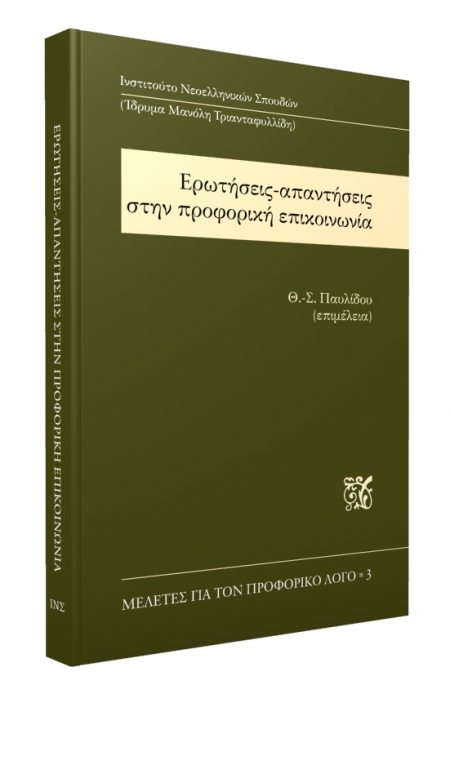Description
This is the third volume in the series Studies in Spoken Discourse, published by the Institute of Modern Greek Studies (IMGS), and is dedicated to a foundational component of linguistic interaction, the question-answer sequence. The volume consists of pragmatically-oriented studies focusing on various aspects of questions and answers in everyday speech (mostly, in conversations and telephone calls between familiars, Part B) or on their use in institutional settings (in television interviews and classroom interaction, Part C). The primary goal of these studies is to shed light on the functions of question-answer sequences through the examination of topics such as the following: How does the design of the question (its morpho-syntactic, prosodic etc. features) affect the answer?, What is the role of question-answer sequences in specific genres (e.g., Narration) or activities (e.g., assessment)?, What are the interactional consequences of question-answer sequences and what are the effects of the extra-linguistic context on question-answer sequences?.
The work published in this volume aspires to contribute to current international research on the issue of actions performed through question formats and the conditions of their differentiation. In recent years, this kind of research is conducted within the Conversation Analysis framework, which, by definition, sees the nuclear question-answer adjacency pair (and more generally, the use of language) as a social activity, relating it to the unequal distribution of knowledge between participants and its management in communication. The theoretical premises, the focal issues and the basic findings of the studies are examined by the expert on the topic of question-answer sequences, professor M.-L. Sorjonen, in the volume’s introductory article (Part A). In this manner, the individual studies on Greek can be approached through a coherent theoretical framework, not necessarily shared by the all the contributors to the volume. Moreover, their findings can be incorporated into an inter-linguistic nexus and be evaluated on the basis of the universality or not of the thus-far research findings on question-answer sequences in other languages.
The book’s editor, Th.-S. Pavlidou, is professor emerita at the Aristotle University of Thessaloniki.
Reviews
No posts found









